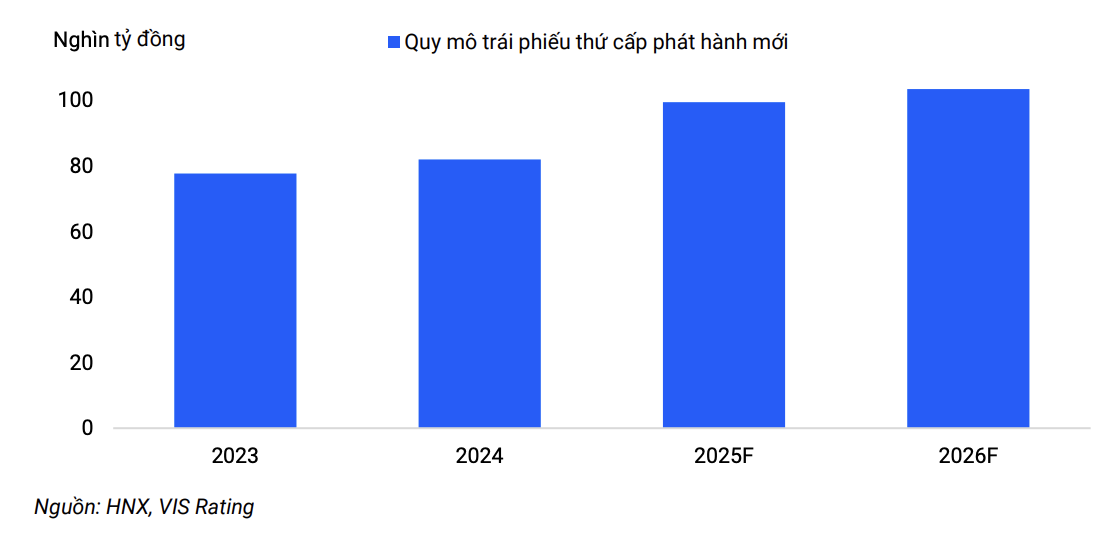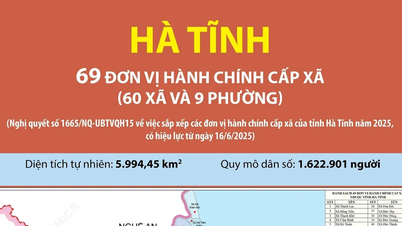VIS Rating expects Vietnamese banks to boost secondary bond issuance in the 2025-2026 period to meet credit growth needs and maintain the minimum capital adequacy ratio as prescribed. It is forecasted that banks will need to issue more than VND200 trillion of secondary bonds in 2025 and 2026.
 |
| Source: HNX, VIS Rating |
As demand for credit, especially from the retail and small and medium-sized enterprise (SME) segments, continues to grow, banks will need to diversify their funding sources. Subordinated bonds, although more expensive to issue than senior debt (e.g., regular bonds), are included in Tier 2 capital in the capital adequacy ratio and support long-term funding.
Circular 41 stipulates the minimum capital adequacy ratio, which includes the Tier 2 capital component. Qualified subordinated bonds can be recognized as regulatory capital, helping banks meet the capital adequacy ratio without diluting equity capital. Faced with difficulties in raising new equity capital, state-owned banks and small private banks have actively supplemented their capital needs by issuing subordinated bonds.
Decree 65 also introduced additional measures to protect investors. Investors purchasing privately issued bonds must sign a commitment to accept risks, thereby enhancing transparency and information disclosure responsibility. At the same time, the issuer must also appoint a bondholder representative to monitor compliance and notify investors of violations, thereby strengthening the governance and monitoring layer.
While the majority of issuances to date have been private, interest in public offerings is growing. However, due to the complexity and risk profile of the instrument, subordinated bonds may not be suitable for all individual investors, VIS Rating noted.
The credit rating agency also said that, in general, Vietnamese banks have above-average standalone credit profiles. Their creditworthiness is reinforced by government support – a key difference from non-banks and private enterprises – reflecting their systemic importance and the new legal framework that provides regulators with more tools and mechanisms to deal with weak banks.
For investors, this instrument offers a higher yield but also comes with a greater degree of risk. The fact that subordinated bonds have a lower rating than senior debt reflects the level of risk of this instrument, including lower repayment priority, risk absorption capacity and interest deferral mechanism.
However, with appropriate protection mechanisms and investors having full access to information, VIS Rating believes that secondary bonds could become an important component of Vietnam's developing capital market.
Source: https://baodautu.vn/cac-ngan-hang-can-phat-hanh-200000-ty-dong-trai-phieu-thu-cap-trong-2-nam-toi-d308578.html










































































































Comment (0)